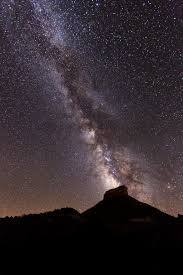Exploring the Wonders of Star Gazing Near You
There’s something magical about looking up at the night sky and getting lost in the vastness of space. If you’re a fan of star gazing, you don’t have to travel far to experience the beauty of the cosmos. There are plenty of great spots near you where you can enjoy this celestial activity.
Choosing the Right Location
When it comes to star gazing, finding a location away from city lights is crucial. Look for parks, nature reserves, or open fields that offer unobstructed views of the night sky. Check if there are any local astronomy clubs or observatories that host star gazing events in your area.
Best Times to Go Star Gazing
The best times for star gazing are typically when the sky is clear and there’s minimal light pollution. Plan your stargazing sessions on nights with a new moon or during meteor showers for optimal viewing conditions.
Essential Equipment
All you really need for star gazing is your eyes, but a pair of binoculars or a telescope can enhance your experience by allowing you to see celestial objects in more detail. Consider bringing along a blanket or chair for comfort and warm clothing if you’ll be out late at night.
Tips for Beginners
- Learn to identify major constellations and stars using star charts or mobile apps.
- Pick a clear night with good weather conditions for your stargazing adventure.
- Be patient and give your eyes time to adjust to the darkness for better visibility.
- Avoid looking at bright lights (like cell phone screens) to preserve your night vision.
- Keep a journal or take photos to document your stargazing experiences and observations.
So why not step outside tonight and gaze up at the stars? You might be surprised by what wonders await you just beyond our atmosphere. Happy star gazing!
Top Stargazing Spots Near You: Utah, Albuquerque, St. Louis, and Virginia
- Where is the best place to stargaze in Utah?
- Where is the closest dark sky to Albuquerque?
- Where can I stargaze in St Louis?
- Where can you stargaze in Virginia?
Where is the best place to stargaze in Utah?
Utah offers a plethora of stunning locations for stargazing enthusiasts to explore. One of the top recommendations for the best place to stargaze in Utah is the Bryce Canyon National Park. Known for its incredibly dark skies and minimal light pollution, Bryce Canyon provides an ideal setting for observing the wonders of the night sky. Visitors can marvel at countless stars, planets, and even the Milky Way stretching across the vast expanse above. Additionally, Capitol Reef National Park and Dead Horse Point State Park are also highly regarded spots in Utah for experiencing breathtaking celestial displays amidst a backdrop of natural beauty.
Where is the closest dark sky to Albuquerque?
When seeking the closest dark sky to Albuquerque for optimal star gazing experiences, one may consider locations such as the Cibola National Forest, which offers relatively low light pollution and clear views of the night sky. Additionally, areas near the towns of Magdalena or Datil in New Mexico are known for their dark skies, providing a perfect backdrop for observing celestial wonders. By venturing to these nearby dark sky spots, enthusiasts can immerse themselves in the beauty of the cosmos and witness the brilliance of stars shining brightly above.
Where can I stargaze in St Louis?
If you’re looking for a place to stargaze in St. Louis, Missouri, there are several options to consider. The St. Louis Science Center often hosts star gazing events and astronomy programs that are open to the public, providing access to telescopes and expert guidance for observing the night sky. Additionally, parks such as Forest Park or Babler State Park offer dark sky areas away from city lights, making them ideal spots for a peaceful and immersive stargazing experience in the St. Louis area.
Where can you stargaze in Virginia?
Virginia offers numerous fantastic locations for stargazing enthusiasts to indulge in the beauty of the night sky. From Shenandoah National Park with its dark skies and stunning vistas to Chincoteague Island on the Eastern Shore, where you can witness celestial wonders over the Atlantic Ocean, Virginia provides a diverse range of stargazing spots. Additionally, observatories such as the Science Museum of Virginia in Richmond and Crooked Run Observatory in Markham offer guided stargazing events and educational programs for those looking to deepen their astronomical knowledge. Whether you prefer a remote natural setting or a structured observatory experience, Virginia has something for every stargazer to enjoy.

